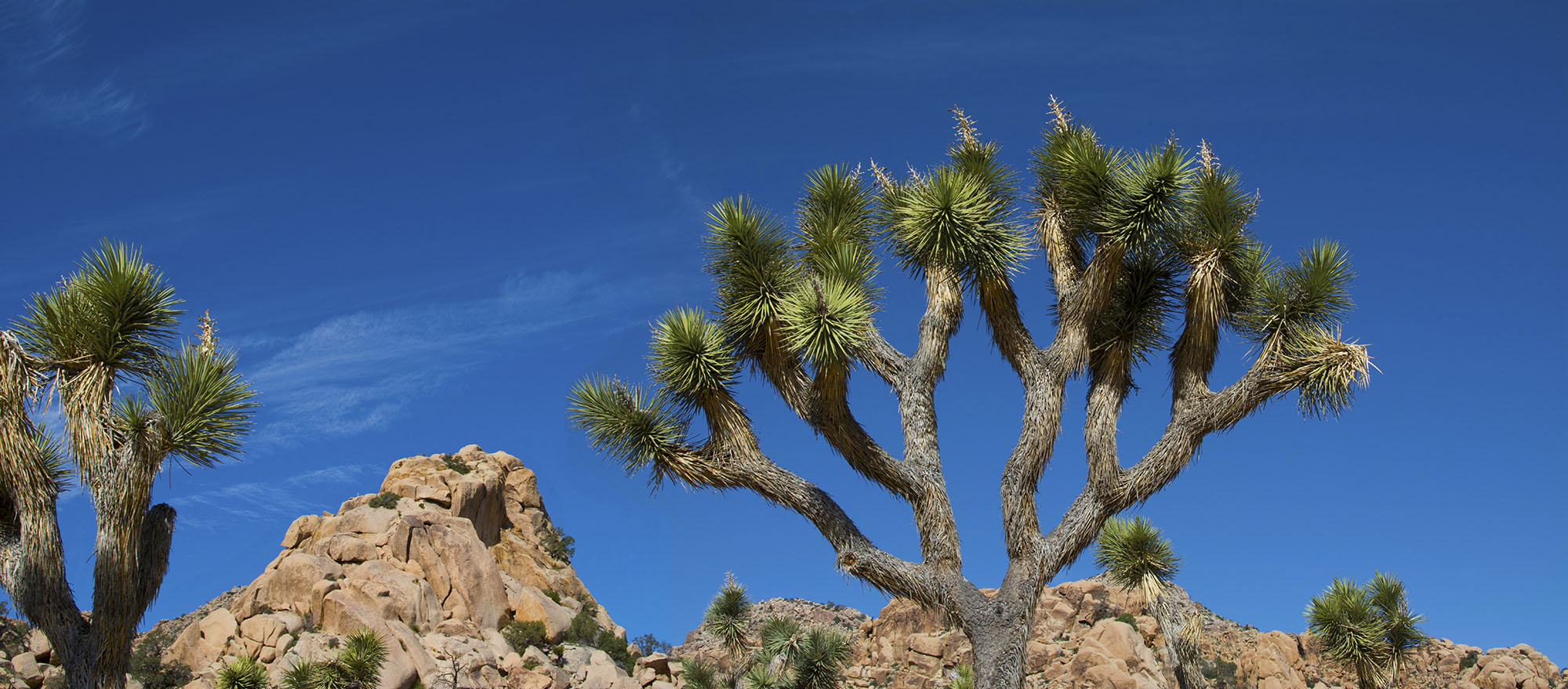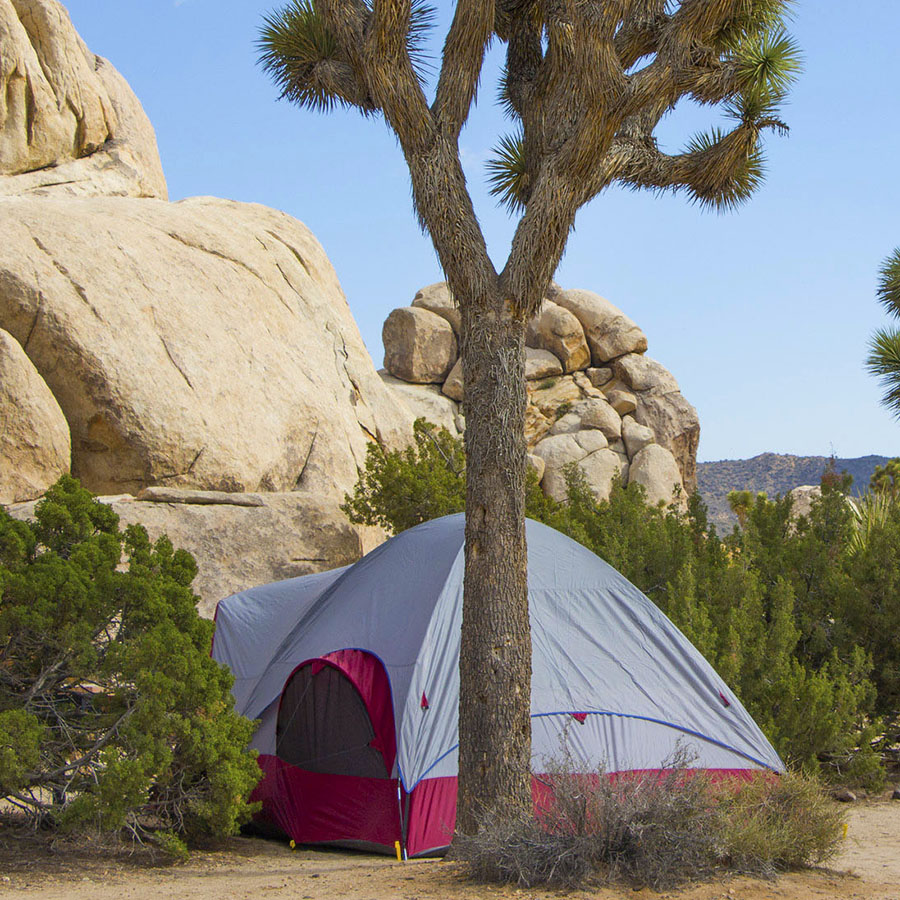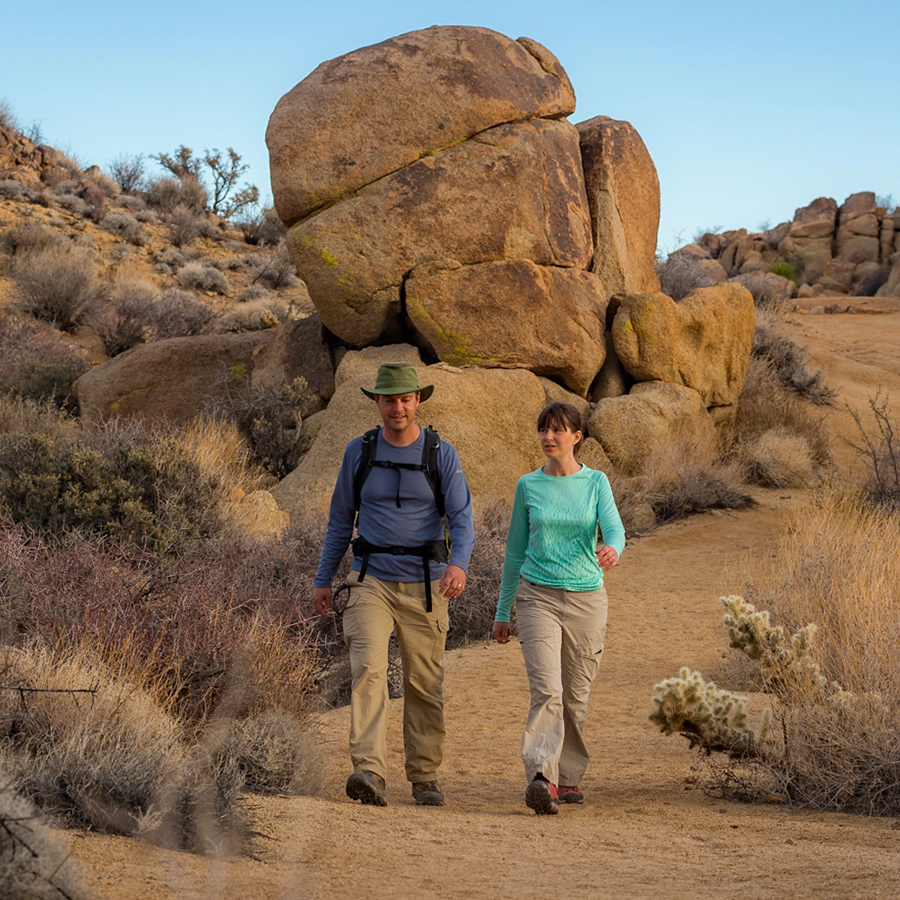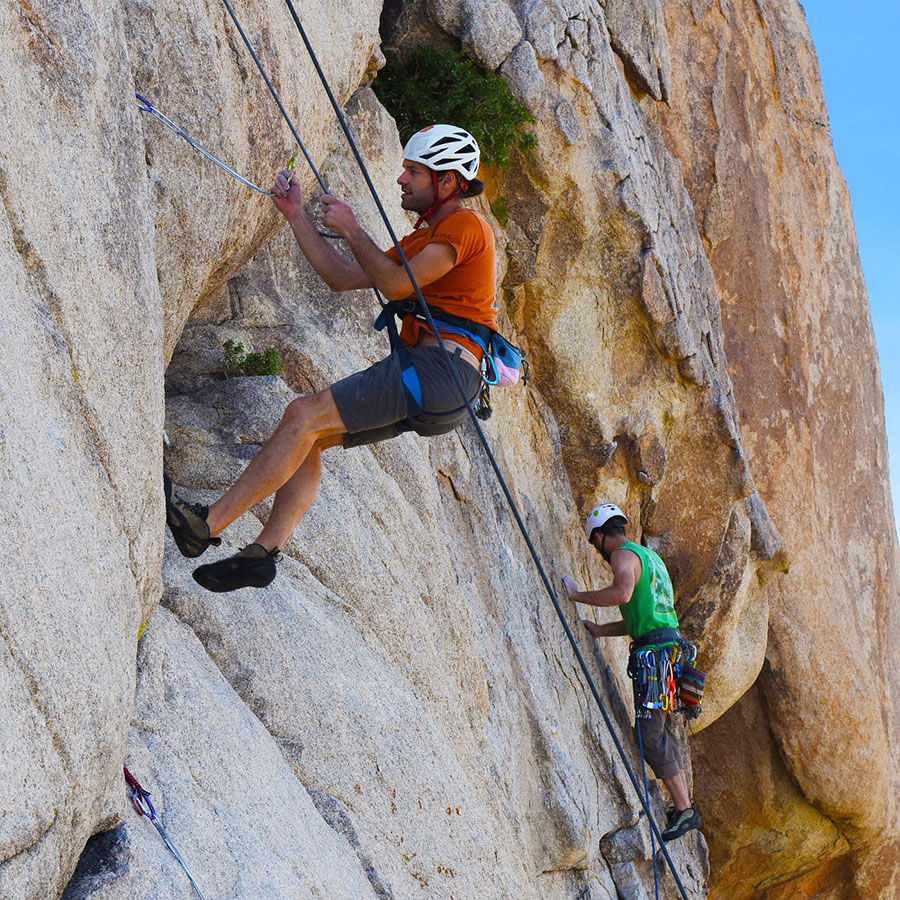
Joshua Tree National Park is a vast protected area, approximately 800,000 acres, a couple hours drive east of La Mirada. It’s characterized by rugged rock formations and stark desert landscapes. Named for the region’s twisted, bristled Joshua trees, the park straddles the cactus-dotted Colorado Desert and the Mojave Desert, which is higher and cooler. Keys View looks out over the Coachella Valley. Hiking trails weave through the boulders of Hidden Valley. Visitors come to the park each year to enjoy activities such as hiking, camping, photography, rock climbing, horseback riding, and simply enjoying the serene desert scenery.
To experience the stunning beauty of Joshua Tree National Park, you won’t want to miss these highlights:
Explore Indian Cove Nature Trail
This walking trail is one of the best places to enjoy the 2park’s cacti surrounded by boulder formations.
Hike among giant boulders on Arch Rock Trail
Take a short hike to a natural arch within granite formations 3 and then scramble back through rock crevices.
Walk among cacti in Cholla Cactus Garden
Follow the short loop of this cacti grove to view one of 4the world’s densest concentrations of cholla cactus.
Experience sunset at Keys View
The highest point in the park, Keys View offers breathtaking vistas but its best at sunset, when colors saturate the sky.
Joshua Tree National Park has many activities to explore:

Camping
Sleep under the stars at one of Joshua Tree’s nine developed campgrounds. Park Boulevard, Hidden Valley, Ryan, and Jumbo Rocks are the most central campgrounds to the park’s attractions. Some campsites may require reservations.

Climbing
With an estimated 8,000 established routes, 2,000 bouldering problems, and hundreds of natural gaps to choose from, Joshua Tree is famous for its traditional-style crack, slab, and steep face climbing.

Hiking
Joshua Tree has over 25 hiking trails for you to explore that cover about 300 miles. The trails range from short paved trails to a 35-mile hike. The best time to visit the park is early spring and late fall. A spring visit has the added potential for wildflower viewing. Pets are not allowed on most trails.
Click here to visit the Joshua Tree National Park website for more information.
